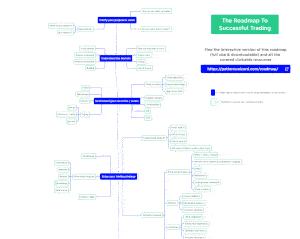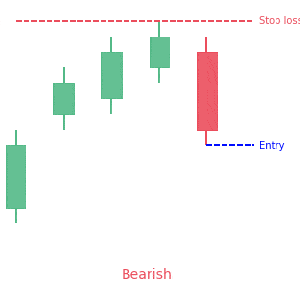Time decay or Theta in options trading is a key aspect of options trading that all options traders need to know about. It refers to the natural reduction in the value of an option contract when the expiration date approaches. Time decay affects both short-term and long-term option contracts. As it erodes the value of options contracts, traders have to be very cautious about it.
If you want to learn all about time decay in options trading, then you are on the right platform. In this article, we are going to explore what time decay is and how it impacts your options. Let’s dive deep to find out.
Time decay in options trading
Time decay in options trading refers to the natural erosion of the value of an option contract upon the arrival of the expiration date. It causes an increased probability of out-of-the-money expiration of options.
Tim decay in options trading explained
Time decay causes erosion of values of options contracts. The rate of time decay varies from one type of option to the other. For instance, it is the highest for at-the-money options and gradually decreases as the option moves in price. Similarly, Theta for short-term options is high because of the near expiration date. Why does time decay happen and why does it accelerate as the expiration date approaches? It happens because when the expiration date approaches, there is less time for the volatility to increase or decrease the price of the underlying security. In other words, the demand for options significantly reduces, and that reduces its value. That is why options go worthless after their expiry.
The importance of time decay in options trading
So, understanding the concept of Theta is easy. Now, let’s move on to understand why this concept is important in options trading.
Price of the option contract
Theta is an important aspect of options trading because it significantly impacts the price of options contracts. The rate substantially increases weeks or days before expiration. That’s the reason that short-term options are more prone to the effects of Theta. Contrarily, long-term options are less impacted by it because buyers have enough time to earn profit. In addition, a longer time until the expiry date increases the probability of increased volatility driving the price of the underlying security higher.
There is another key aspect here and that is the impact of Theta on premiums. Typically, options with longer expiration dates have higher premiums because they face less Theta impacts. Simply put, options with an expiry date after one year have very high premiums as compared to options expiring in one month. In addition, Theta isn’t a linear process and the rate of time decay doesn’t stay constant over time. Instead, it accelerates as the expiration date approaches and it can quickly blow off the value of an option.
To cut the long story short, it is of paramount importance for options traders to keep an eye on Theta. It is the most important measure for a short-term options trader who must be very cautious given the impacts of Theta. So, what should traders do here, or what should be the best bet?
This is a very pertinent question here. It is important to note that it is the extrinsic value of an option that Theta erodes and gradually diminishes it. However, the intrinsic value of options contracts stays intact if the price of the underlying security is above the strike price (or below the strike price in the case of put options). Now, traders are planning to hold their trade until the expiry is on the safe side. How so? Because the intrinsic value, the price of the underlying security, can make up for their losses. Conversely, traders looking to close their positions before expiration can end up suffering significant losses. Therefore, traders should always bear in mind that they need to buy options that have greater intrinsic value than the impact of time decay on them.
Theta
The rate of time decay or the rate of change in the value of an option contract as the expiration date draws near is denoted by theta. Theta is an Options Greeks measure that has always a negative value and increases day by day. For instance, if the theta value on an option is -0.2, the value of that option continues to decrease by $0.2 only because of time decay.
That being said, it is important to buy options contracts with greater intrinsic value than the impacts of time decay. For instance, if time decay is $0.2 but the intrinsic value is rising by $0.1, you will be in a bad position upon the expiration date.
The wrap-up
Time decay or theta is an important measure to bear in mind when trading options. It greatly affects the value of your options over time. Therefore, it is important to keep aspects like intrinsic value, extrinsic value, and strike price in mind before opening a trade. Best of luck!
 Good Trading requires the Best Charting Tool!
Good Trading requires the Best Charting Tool!

 We loved Marwood Research’s course “Candlestick Analysis For Professional Traders“. Do you want to follow a great video course and deep dive into 26 candlestick patterns (and compare their success rates)? Then make sure to check this course!
We loved Marwood Research’s course “Candlestick Analysis For Professional Traders“. Do you want to follow a great video course and deep dive into 26 candlestick patterns (and compare their success rates)? Then make sure to check this course!